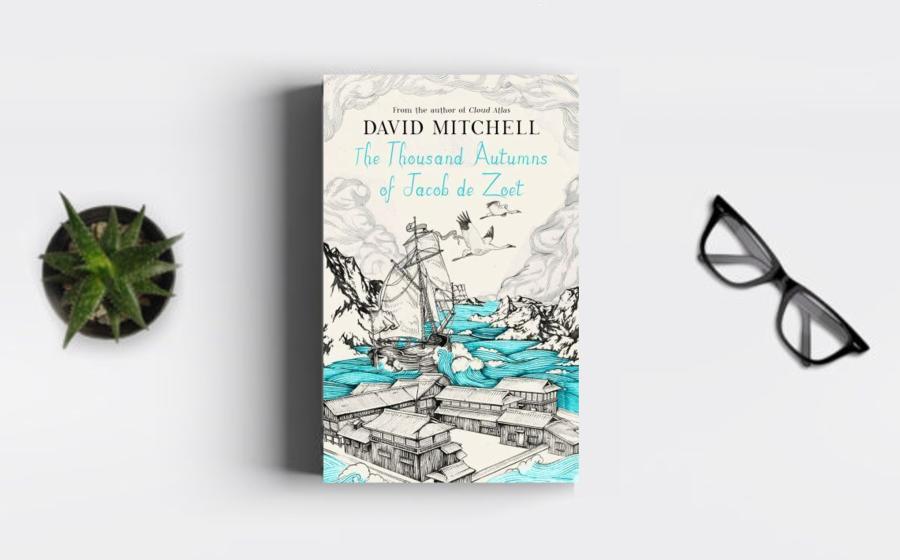"The Thousand Autumns of Jacob de Zoet," published in
2010, stands as a contemporary classic that weaves a
rich tapestry of history, culture, and human resilience.
This historical novel, set in 18th-century Japan,
transcends traditional genre boundaries, offering
readers a captivating exploration of love, morality, and
the collision of East and West. As we delve into the
reasons behind its acclaim and enduring significance, it
becomes evident that "The Thousand Autumns of Jacob de
Zoet" is a modern masterpiece that seamlessly blends
literary artistry with a profound examination of the
human experience.
The novel unfolds on the tiny
island of Dejima in Nagasaki Harbor, the sole point of
contact between Japan and the outside world during the
Edo period. Jacob de Zoet, a young and idealistic Dutch
clerk, arrives at Dejima with the Dutch East India
Company, seeking fortune and redemption from his past.
The isolation of Dejima, the intricate layers of
Japanese society, and the historical backdrop of the
late 18th century form the canvas upon which Mitchell
paints a tale of forbidden love, political intrigue, and
the clash of cultures.
One of the novel's
remarkable qualities is Mitchell's meticulous attention
to historical detail and his ability to transport
readers to a distant time and place. Dejima, a trading
post governed by strict Japanese regulations, comes
alive through vivid descriptions and meticulous
research. Mitchell captures the cultural nuances, the
social hierarchies, and the complex relationships
between the Dutch traders and the Japanese officials
with an authenticity that immerses readers in the
historical setting. The novel's historical accuracy is a
testament to Mitchell's dedication to creating a
narrative that resonates with the past while addressing
universal themes.
At the heart of the novel is
the forbidden romance between Jacob de Zoet and Orito
Aibagawa, a Japanese midwife. Their love unfolds against
a backdrop of societal expectations, cultural barriers,
and the clash of East and West. Mitchell explores themes
of love and morality with nuance, presenting characters
who grapple with personal desires in the face of
societal constraints. The complexity of their
relationship serves as a lens through which the novel
examines the intersections of tradition, duty, and
individual autonomy.
Mitchell's prose is a
testament to his literary prowess, characterized by its
lyrical beauty and intricate structure. The novel is
divided into multiple perspectives and voices,
showcasing Mitchell's mastery of narrative technique.
Each chapter is a standalone work of art, contributing
to the larger mosaic of the novel. The author's ability
to seamlessly shift between different characters and
narrative styles creates a layered and immersive reading
experience. This narrative complexity is one of the
novel's defining features, elevating it beyond
traditional historical fiction into the realm of
literary excellence.
"The Thousand Autumns of
Jacob de Zoet" is not merely a historical narrative; it
is a meditation on the collision of cultures and the
impact of historical forces on individual lives.
Mitchell delves into the power dynamics between the
Dutch traders and the Japanese authorities, offering a
critique of imperialism and the exploitation inherent in
colonial encounters. The novel prompts readers to
reflect on the consequences of cultural clashes, the
price of progress, and the lasting effects of historical
events on individuals and societies.
The novel's
exploration of spirituality and the supernatural adds a
layer of mysticism to the narrative. Mitchell
incorporates elements of Japanese folklore, Shinto
beliefs, and Dutch superstitions, creating a world where
the boundaries between the natural and supernatural are
blurred. This infusion of magical realism adds depth to
the storytelling, inviting readers to consider the
interplay between the seen and unseen forces that shape
the characters' fates.
While the novel is
grounded in historical realities, Mitchell incorporates
elements of speculative fiction that challenge
traditional genre categorizations. The inclusion of
fantastical elements, including a mysterious cult and a
quest for immortality, adds a layer of intrigue and
unpredictability to the narrative. This blending of
historical fiction and speculative elements contributes
to the novel's uniqueness, making it a work that defies
easy classification and stands as a testament to
Mitchell's narrative innovation.
The novel's
acclaim and recognition by literary critics further
solidify its status as a contemporary classic. "The
Thousand Autumns of Jacob de Zoet" was shortlisted for
the Booker Prize and received widespread critical praise
for its literary merits, narrative complexity, and
historical depth. Mitchell's ability to balance
intricate storytelling with profound thematic
exploration has earned the novel a place among the canon
of contemporary literature. Its recognition within the
literary community underscores its significance as a
work of enduring literary value.
The novel's
exploration of universal themes ensures its relevance
beyond its historical context. While rooted in the 18th
century, the novel addresses timeless questions about
love, morality, and the consequences of human actions.
Jacob de Zoet's journey from idealism to
disillusionment, the complexities of forbidden love, and
the examination of power dynamics are themes that
resonate with readers across different cultures and
periods. The novel's ability to transcend its historical
setting and connect with readers on a universal level
contributes to its status as a contemporary classic.
"The Thousand Autumns of Jacob de Zoet" by David Mitchell stands as a contemporary classic that transcends traditional genre boundaries, offering a profound exploration of history, culture, and the complexities of the human experience. Mitchell's literary craftsmanship, historical accuracy, and thematic depth contribute to a narrative that captivates readers with its beauty and challenges them with its intellectual richness.






